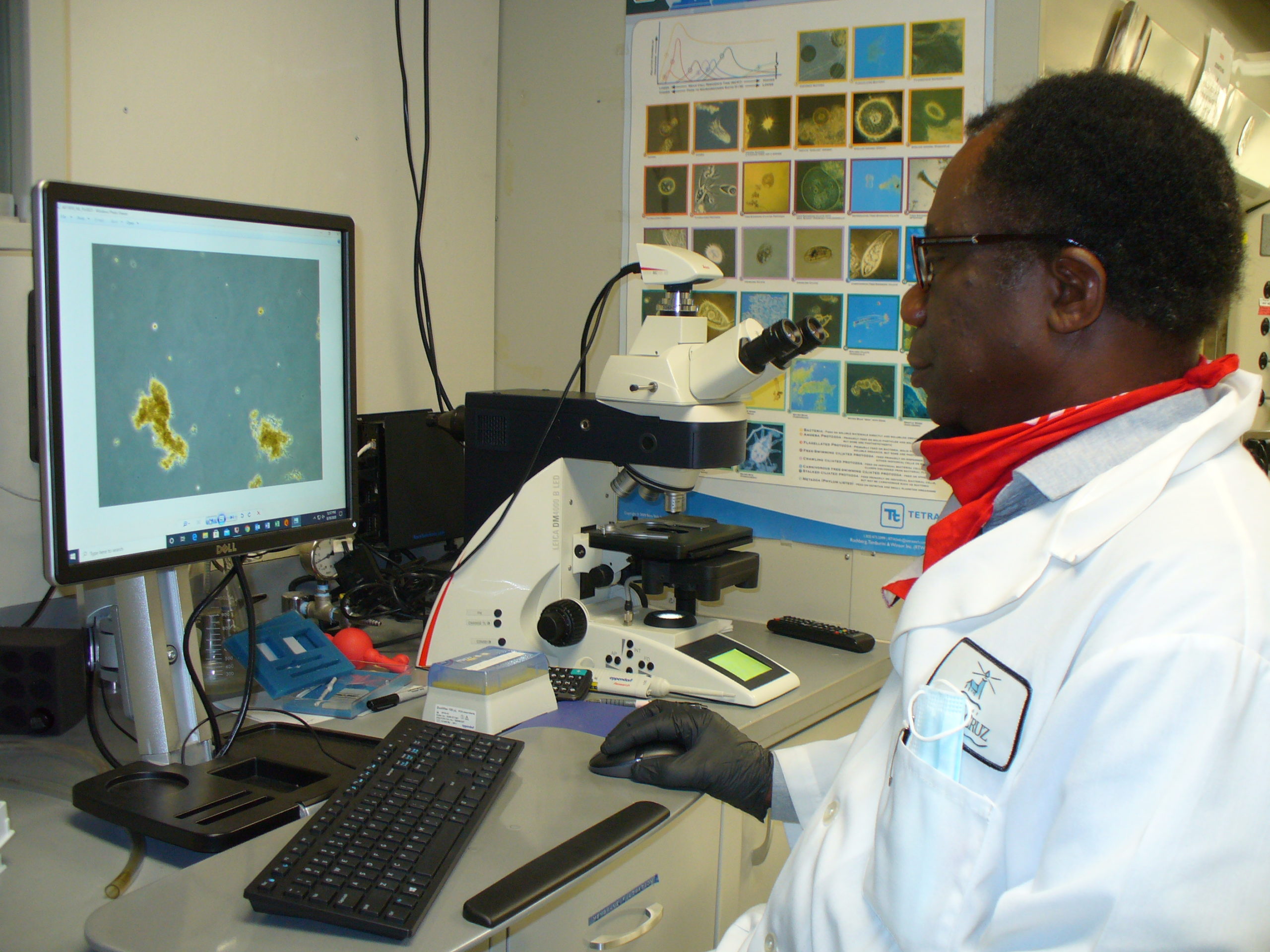
Akin Babatola entered the industry as a professional microbiologist at the City of San Jose’s Wastewater Treatment Plant in 1992. Having earned his degrees in Microbiology and Molecular Biology, he worked as a Research Microbiologist at Sola Barnes-Hind in Sunnyvale until it was sold and the R&D program was released in 1991. It seemed an inviting position to apply his credentials and skills in microbiology to the mission of environmental public health protection at the great City of San Jose, so when the vacancy was published, he competed for and earned the job.
What has been your greatest challenge in this profession?
The transition to the important view that POTWs are almost always the largest single investment that communities and municipalities make in their own economic and environmental sustainability often poses the biggest challenge to the traditional leaders of the communities.
This was true for me in San Jose which up till 1992 seemed to share the traditional view that a POTW was largely, if not solely, a necessary outlet to dispose of inconvenient and perhaps unhealthy waste products.
This transition in visioning also challenges resource and facility managers who may only have had much narrower definitions of their mission and scope of responsibilities.
At the unit management level it requires a commitment to infuse this empowering, inviting and stimulating perspective to staff also.
Where there is resistance either at the operational and/or management level, these often manifest in ways that are not direct, and often require patience and top management understanding to successfully navigate the challenges.
I was fortunate to have had those institutional supports when needed.
What has been your greatest benefit from being in this profession?
The wealth of knowledge that I have been a part of creating during my tenure is only second to the relationships built across the state and country and Canada. Perhaps I am limited by my imagination, but it is difficult to imagine such a wealth of relationships formed; solutions offered; all with enduring positive impacts in any other industry!
How has the profession changed for you over the years?
The broadest change in the industry has been its transition from traditional wastewater treatment to engines of environmental sustainability.
The industry continues to demonstrate adaptive leadership and management styles which has allowed it to adapt to the unanticipated environmental health challenges of our time.
This is manifested in its continuing response to the challenges of monitoring; controlling and limiting the anthropogenic compounds into natural waters; offering expertise on sewer surveillance for epidemiological benefits of the communities; modifying treatment strategies to develop effluents and Biosolids that are resources and not merely inconvenient and non-toxic end-products; and engaging college educated professional scientists; engineers as well and higher grades of training for Professional Operators.
What is the biggest value you get from being a CWEA member?
The highest value I have benefited from CWEA has been the educational and social value of the interactions across the State at State Conferences and in the Professional Committees. CWEA has allowed the growth of knowledge by providing these mechanisms and they have contributed immensely to the joys of the profession for me.
What would you tell a young, black student are reasons to join the water profession?
I would illustrate the transitions made by the industry to encourage their imagination; I would also encourage them to imagine participating in a world (water industry) in which the singularity of their skills and commitment would obviate the larger systemic challenges of the prevailing culture.
I would share examples with them to illustrate the many rewards of this type of engagement, which in my experience blunts the negative impacts of those systemic challenges, and thereby provides them energy to go home and engage with their families happily and rest in the moral certainty of their value to a sustainable world.
What should CWEA do to diversify our profession?
I would suggest that the CWEA examines the rules and protocols that are manipulated by those who joined much earlier to entrench themselves and effectively prevent true turnover and succession. These block minorities and younger talents alike.
I would also suggest that CWEA should cultivate and/or provide connections to organizations that are currently aiming to mentor minorities and ask how to help.
Finally, I would suggest that CWEA (and WEF) continue to review the Federal Labor Statistics to assess reasons why the Operations cadre of our industry remains largely (>75%) white and male; and eliminate the artifices that are used to keep young minorities from participating in the industry.